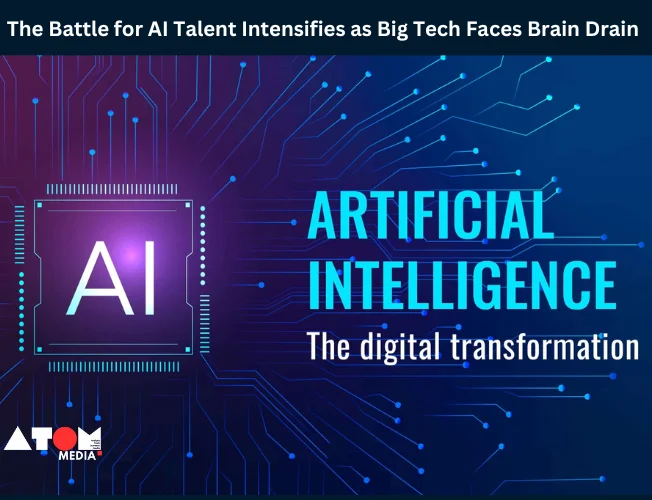Major tech companies have been engaged in a vigorous struggle to acquire the best AI expertise in recent months, fearing that this brain drain may negatively affect their ability to produce new ideas. A good example is OpenAI, which gained notoriety for creating the ground-breaking AI chatbot ChatGPT. Since the beginning of the year, the business has lost about a dozen important researchers. Among them is co-founder Ilya Sutskever, who quit on May 14th and was a crucial player in several of OpenAI’s significant breakthroughs.
Sutskever’s exit, which is said to have something to do with internal leadership dynamics, highlights a larger pattern at OpenAI, where about half of the AI specialists hired since 2016 have moved on to other possibilities.
The Demand for AI Expertise
Despite recent cutbacks in non-engineering professions, tech giants like Microsoft and Google are actively seeking star researchers who can push the boundaries of AI capabilities. People like Google’s AI chief Jeff Dean are in great demand because they can lead ground-breaking discoveries that improve AI dependability and efficiency.
These top researchers—who frequently number in the hundreds worldwide—play a crucial role in creating cutting-edge AI models with the potential to completely transform whole industries. Their contributions to tech organisations seeking to sustain a competitive edge in the quickly changing AI market are invaluable, ranging from enhancing algorithmic efficiency to minimising concerns like data confabulation.
The Value Proposition of AI Superstars
Beyond their technical skill, AI superstars are highly desirable because they influence research priorities and the direction of AI applications in the future. In order to attract and keep elite people in this fiercely competitive industry, companies are willing to give substantial compensation packages, frequently surpassing seven-figure sums, in recognition of their strategic value.
Securing long-term technological leadership is another reason to invest in AI talent, in addition to the potential for immediate returns. Businesses are aware that advances in AI research can result in major competitive advantages and drive innovations that fundamentally alter a variety of industries, including banking and healthcare.
Industry Dynamics and Challenges
Within the AI industry, there is a phenomena of talent movement that is a reflection of the broader industry dynamics of highly sought-after yet scarcely available specialised talents. Due to this shortage, there is more competition amongst tech companies, startups, and academic institutions for the few number of specialists who can advance AI innovation.
Furthermore, organisations face difficulties with continuity and knowledge retention when key persons leave. To continue advancing AI capabilities, businesses must manage these complications while preserving an environment that is supportive of research and development.
Final Thoughts
Tech companies are faced with the dual task of hiring outstanding researchers and establishing an environment that supports ongoing innovation as the competition for AI expertise heats up. Important players like Ilya Sutskever leaving OpenAI is a clear indication of the internal dynamics and competitive pressures reshaping the AI industry.
In the future, a company’s capacity to attract and keep AI superstars will play a critical role in defining its capacity to propel revolutionary developments in AI technology. The race to realise AI’s full potential is still on, offering players in the IT sector both chances and problems.
Read more: Marketing News, Advertising News, PR and Finance News, Digital News, Startup





